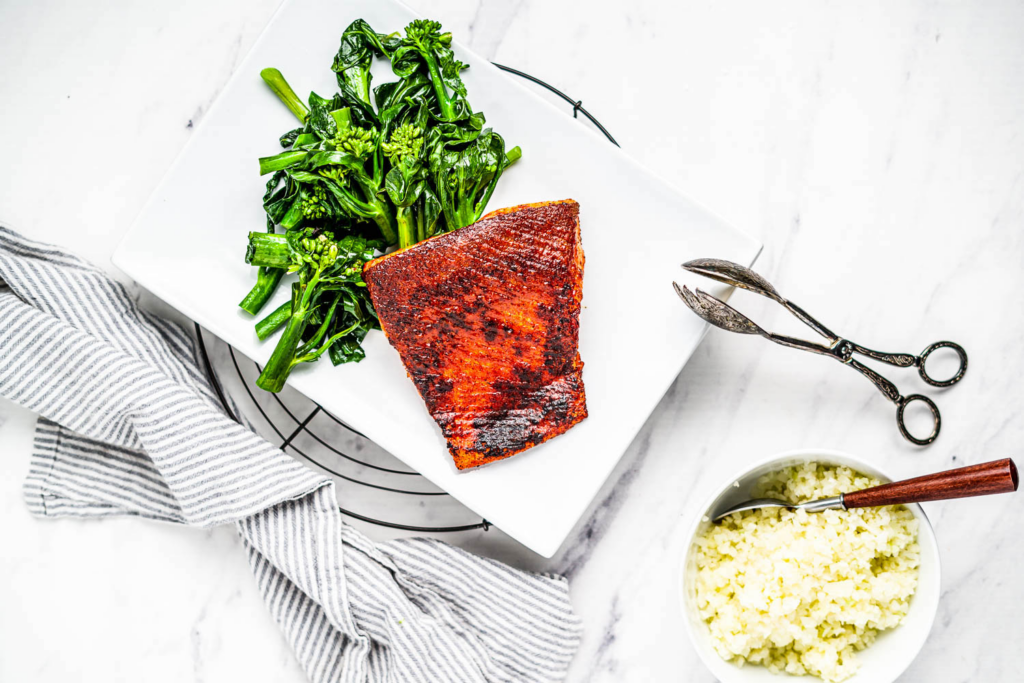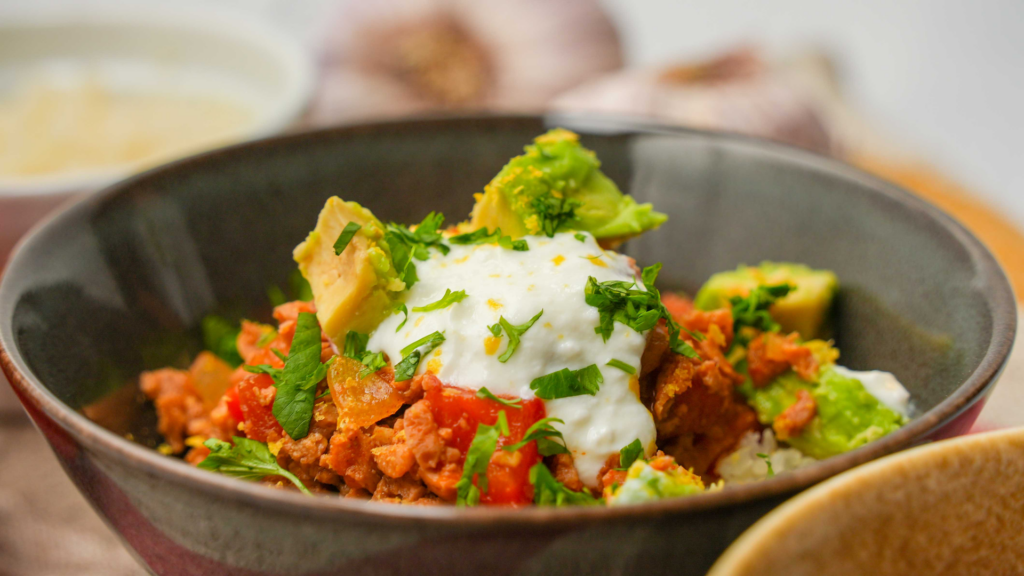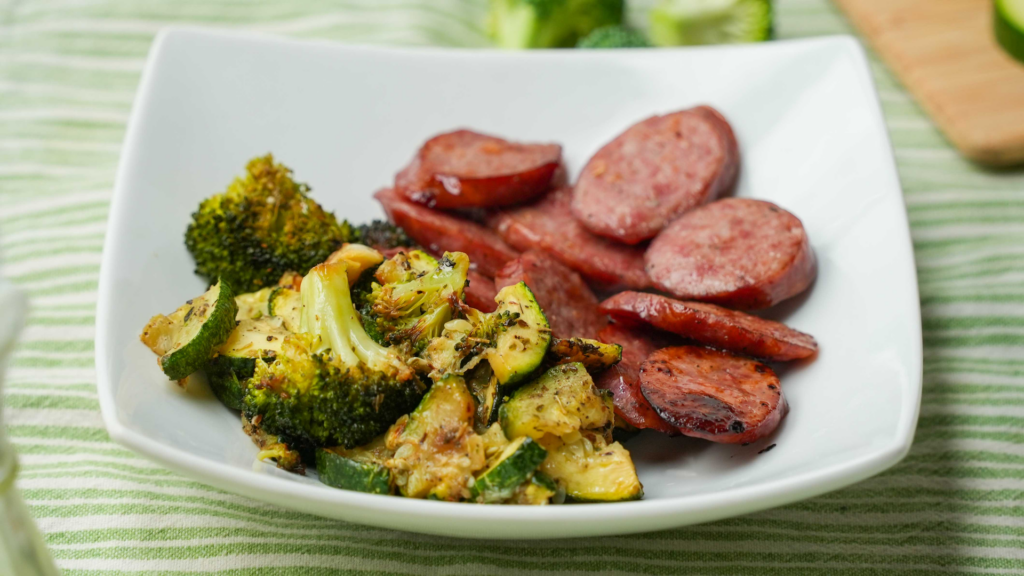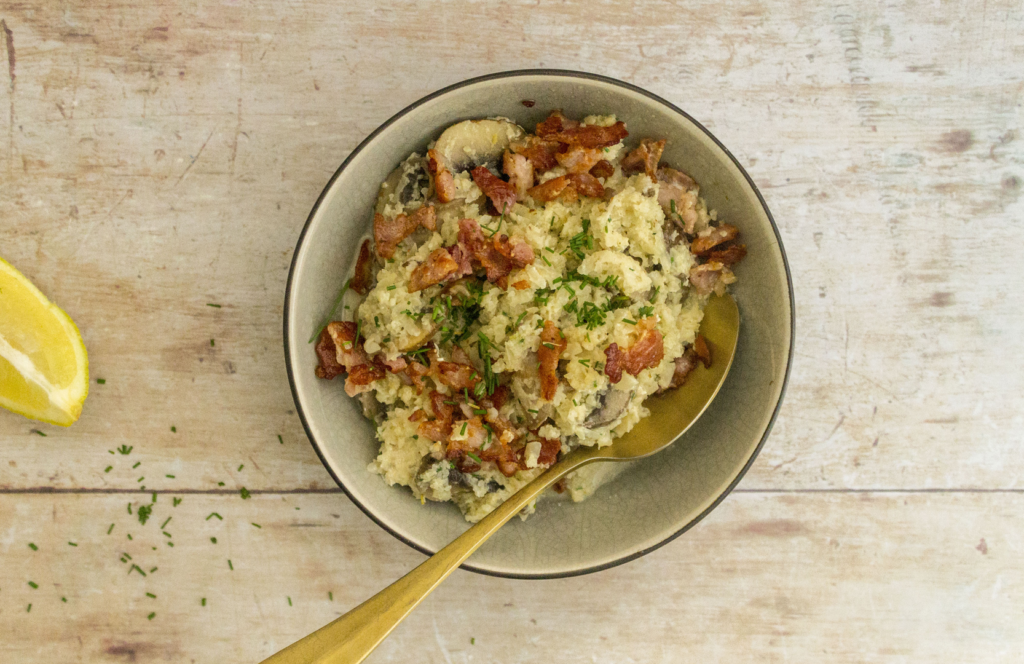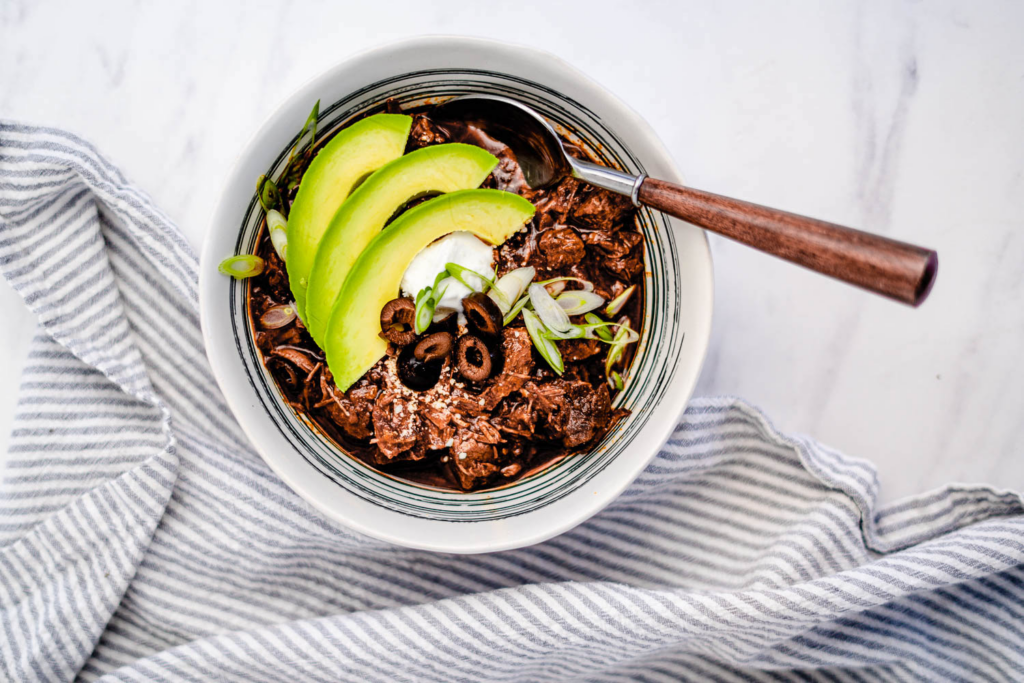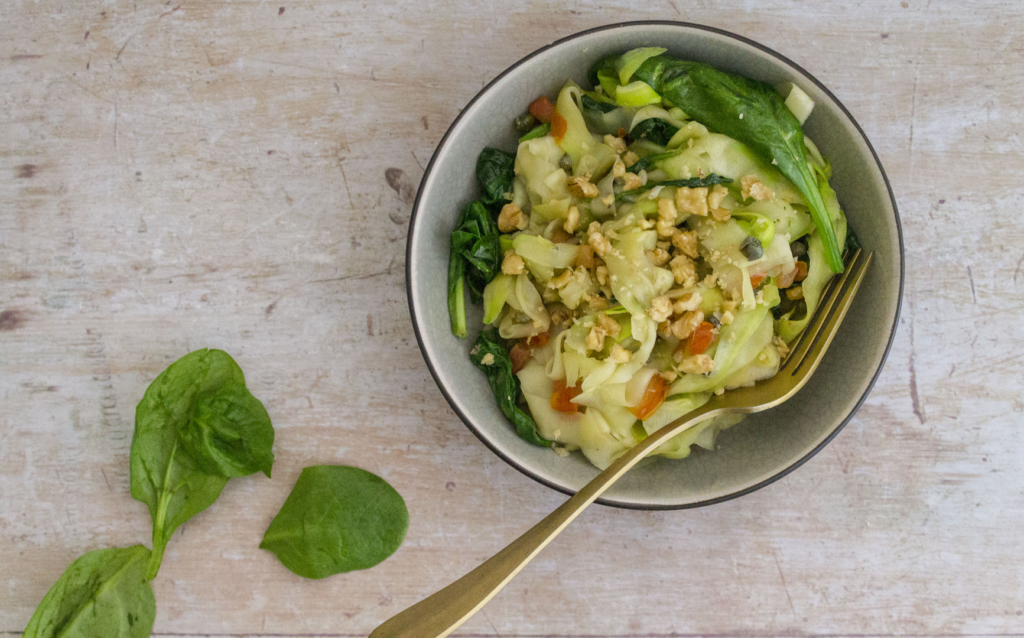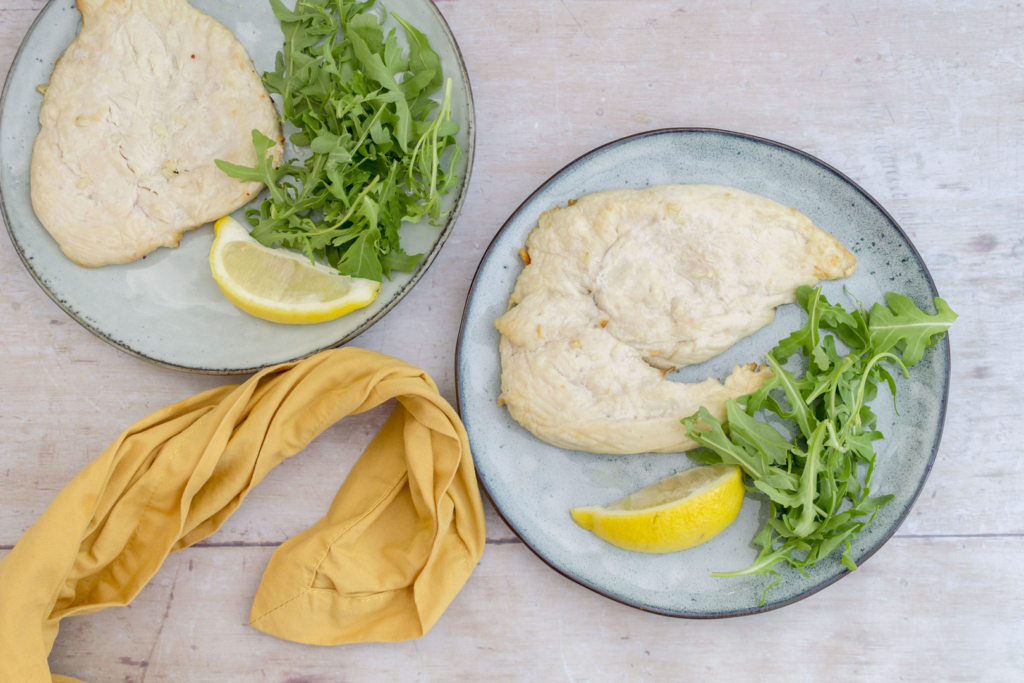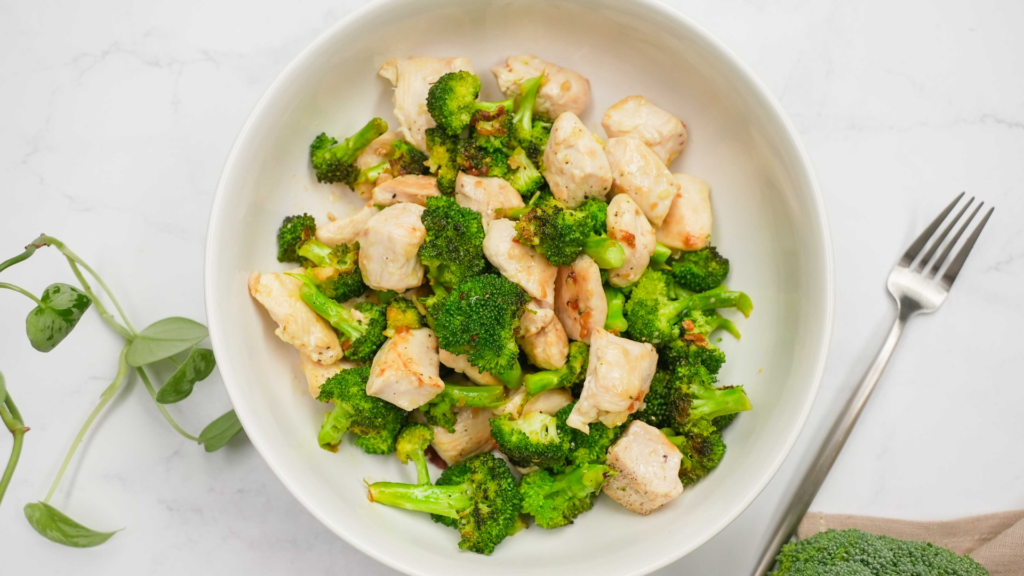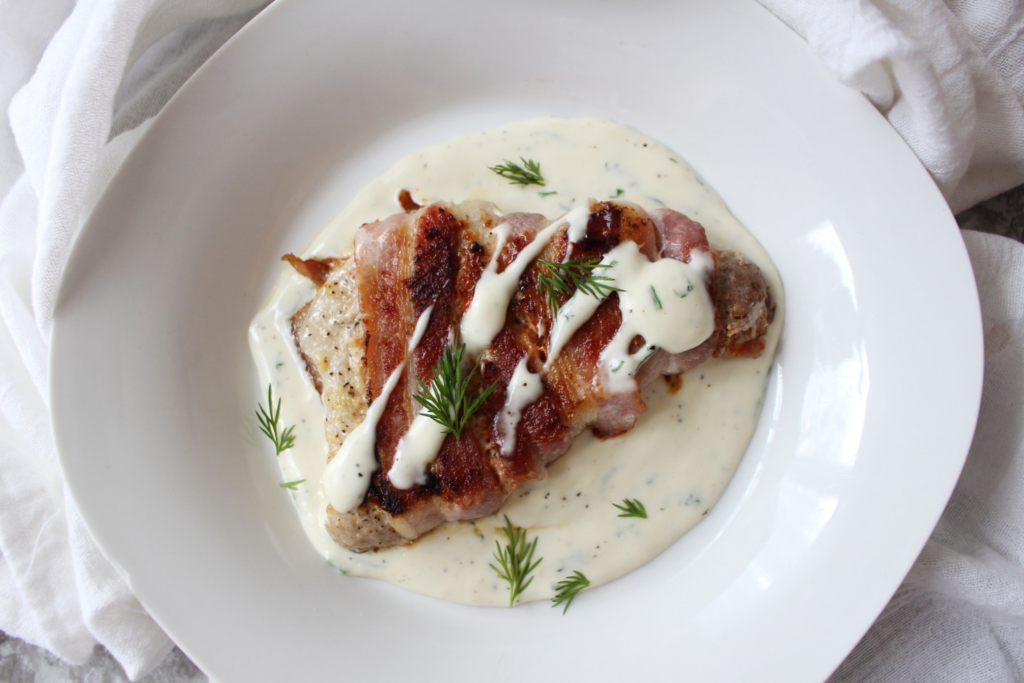About
This Keto fish recipe is an unconventional twist on a classic American dish; the blackened fish. The skin on red trout is seasoned with salt, and the skin is seared until crispy. A gochujang sauce made from spicy brown mustard, hot gochujang, coconut aminos, and rice wine vinegar is spread on top of the skin and meat. The fish is then fried again on both sides to “blacken” the fish. The deliciously seared and blackened fish is served with cooked Chinese broccoli that has been seasoned with only sesame seed oil and sea salt.
Can I use other fish?
Yes! Please feel free to use other kinds of fish skin or not. I love using skin-on fish because of the extra fat and flavor it provides. You could consider different types of fish for this dish: salmon, cod, tilapia, and flounder.
What is gochujang?
Gochujang is a fermented chili paste that adds a great depth of flavor. It contains a small amount of wheat flour, so if you avoid gluten, please substitute the gochujang with sriracha or sambal.
Where can I find Chinese broccoli?
You can find Chinese broccoli at your local Asian grocery store. If you cannot find it, go ahead and substitute it with broccoli.
Serving suggestions
If your carb limit can handle it, feel free to serve this dish with Keto Cauliflower Rice
Ingredients
- 1 tablespoon gochujang red pepper paste
- 1 tablespoon spicy brown mustard
- 1 teaspoon rice wine vinegar
- 1 teaspoon sesame oil
- 1 tablespoon coconut aminos
- ¾ lb trout, ruby red
- 3 tablespoon avocado oil
- ¾ lb chinese broccoli (kai-lan or gai-lan), raw
- 2 teaspoon sesame oil
- ½ teaspoon salt, sea salt
Instructions
- To make the sauce combine the gochujang chili paste, spicy brown mustard, rice vinegar, coconut aminos, and 1 tsp sesame seed oil. Mix well to incorporate all the ingredients. Set the mixture aside and place a heatproof silicone pastry brush next to the bowl, ready to go.
- Go ahead and wash the Chinese broccoli well. Cut the Chinese broccoli in half, separating the stems from the leaves. Place them in separate piles.
- Dry off the fish with paper towels to ensure the skin is nice and dry for a great sear. Season the skin side and the meat side of the fish with ½ tsp sea salt. Preheat a large nonstick skillet over medium-high heat until the pan is very hot. Add 2 tbsp avocado oil and swirl the pan to coat it. Add the fish skin side down.
- Turn the heat down to medium heat. Allow the skin to cook on this side for several minutes, about 4-5 minutes on this lower heat to crisp up the skin. Flip the fish skin side up. Brush the skin liberally with the gochujang sauce. Cook meat side down for 1-2 minutes. Then flip the fish again and brush the sauce liberally on the meat side. Repeat this process until the skin is blackened but not burnt and the fish is cooked through. The fish is cooked properly when the fish is flaky and an internal temperature reaches 145 F.
- While the fish is cooking, start to cook the Chinese broccoli. Heat another large nonstick skillet over medium-high heat. Add one tablespoon of avocado oil and swirl the pan. Add in the stem parts of the Chinese broccoli. Cook for 30 seconds, stirring constantly. Then add in ¼ cup of water and top the skillet with a lid. Allow cooking like this for 2-3 minutes. The stems should be bright green at this point.
- Add in the leaves and toss them around with the stems. Place the lid on the skillet again and allow to cook for 4-5 minutes or longer depending on how crunchy you like the stems pieces to be. I like them to retain the crunch, and the timing here reflects that. Be sure to stir the stems and leaves occasionally to prevent burning. Season them with ½ tsp sea salt, the remaining sesame oil, and mix well.
- Serve the hot fish with the cooked vegetables and enjoy!
Nutrition Facts
- Servings: 2
- Calories: 564.8kcal/1350.8kJ (per serving)
- Fat: 38.8g (per serving)
- Carbs: 15.8g (per serving)
- Protein: 48.8g (per serving)
